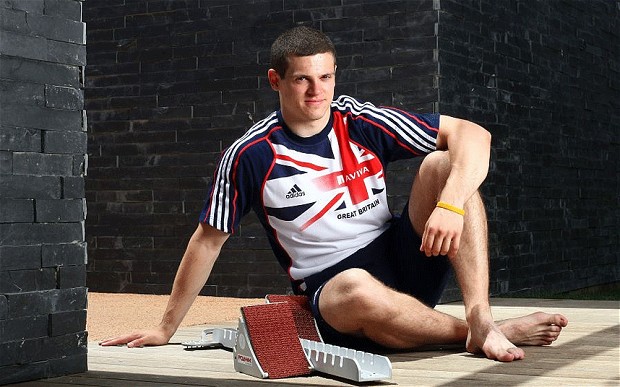Genetic testing for masters? Perhaps it can help avert injuries
Craig continues:
An interesting aspect for coaches and support staff to consider is that compliance to an exercise and diet programme is greater in individuals who have been placed on a programme that matches their genetic requirements. In essence, genetic testing is another tool in the armoury that allows for a well-informed training programme that is specifically designed to maximally benefit an athlete based on their genetic make-up.
So here’s a way to craft an advantage: Cough up the money for genetic testing, and follow its suggestions. (The injury-prevention angle sounds promising.)
USADA can’t stop you. But is this advantage a fair one? (It goes only to those who can afford it, after all.)
Also unfair is that retirees have more time to train than us full-time worker bees.
BTW, Craig Pickering has a dog in this fight. He works for DNAFit, which tries to sell people on genetic testing.
So how much does genetic testing cost? DNAFit sells packages that range from $119 to $400. Other outfits have similar products, such as Genetic Performance and Atlas Sports Genetics.
Has anyone gotten their genes tested? What resulted? Anyone thinking about this?
Is it fair?






5 Responses
I’m curious about it. I can definitely see how it comes revolutionize ones training and health overall. And yes: I believe this is totally fair.
It’s as fair as the world gets. Nearly everyone who can compete can afford $400. Those who can’t afford that can’t afford a gym membership, a trainer, the cost of participating in a track club, or even one trip to a national championship. Then there’s the time factor (as you alluded to) and the geographic realities (weather, proximity to training facilities). But nothing more so than one’s actual genetic makeup, not only in natural talent but also in injury prevention. So if there’s a way to know one’s body better and do what’s best, athletically and nutritionally, given your genetic makeup, that’s healthy information and no more unfair than having a good trainer or coach which many of us can’t get because we live in the sticks and others can’t because of the cost.
I have not gotten tested but will someday once the technology and price make it a good idea, and for reasons above and beyond athletic performance – but that’s a nice bonus!
I’m not a professional athlete. I just want to run and have some fun. I have learned that not all knowledge is for me.
Sure it’s fair. Who doesn’t want to train smarter. If one can train more specifically to their genotype better results should ensue…right? Problem is it’s all theoretical at this time. I doubt the companies have significant data to justify their claims…but it’s only a matter of time in my opinion.
I’m not a biologist, but a quick review of the biological literature suggests that there may well be differences on the “speed versus endurance” dimension among people who have either the RR, RX or XX combinations of the ACTN3 gene (everyone has 2 total, one from each parent). One conservative (or sarcastic, admitedly!) conclusion might be that this is no more useful than finding out that males have the XY and females have the XX combinationon their 23rd pair of chromosomes. Still, this info could hypothetically affect training. Two interesting studies (among many); look for and/or keywords in Google or Scholar.google:
1-Pimenta, EM et al. (2013). Effect of ACTN3 gene on strength and endurance in soccer players. J Strength Cond Res. Dec;27(12):pp.3286-92.
2-Pereira1, A., et al. (2012). ACTN3 and ACE genotype affects muscular performance in response to high-speed power training in older Caucasian women. Human Physiology Abstracts. The Biomedical Basis of Elite Performance (London) Proc Physiol Soc 26, PC39.
Leave a Reply